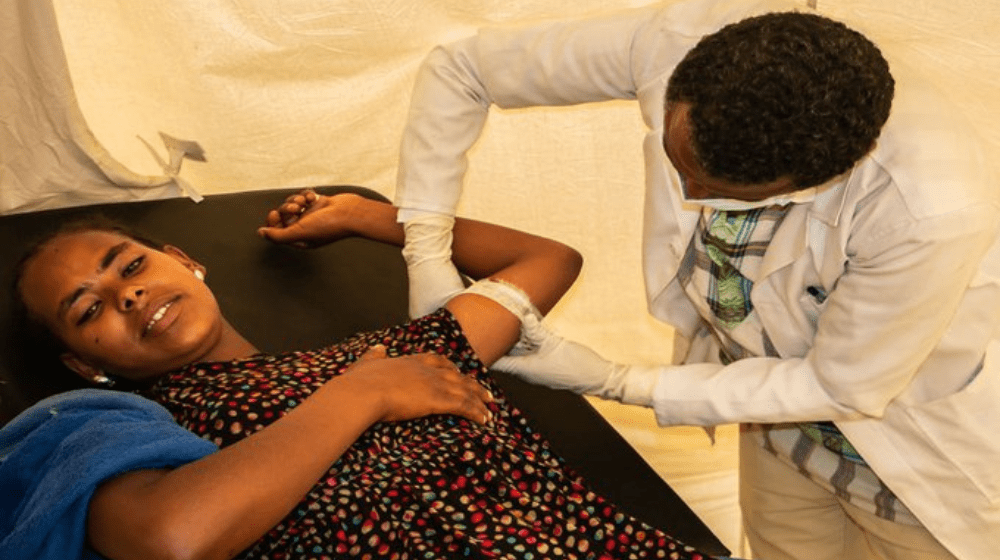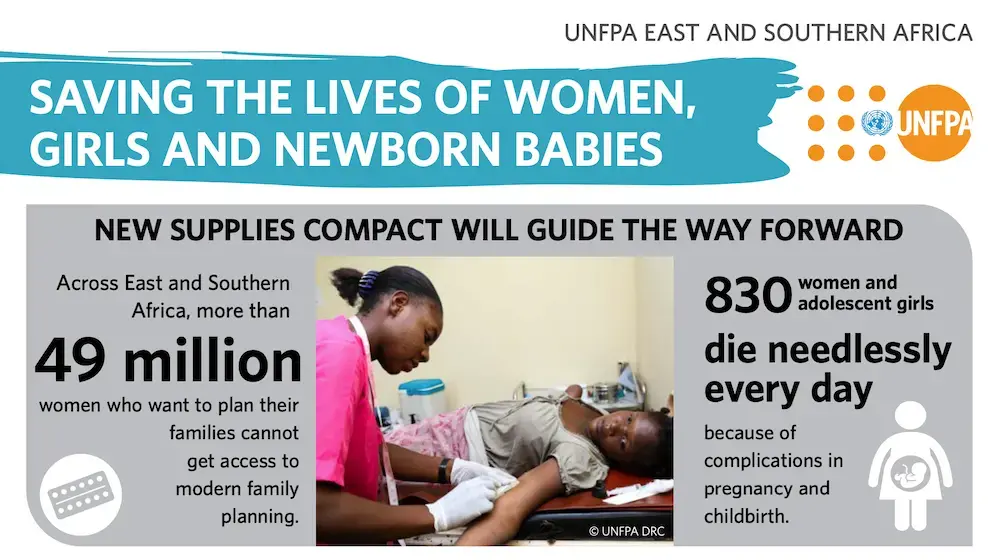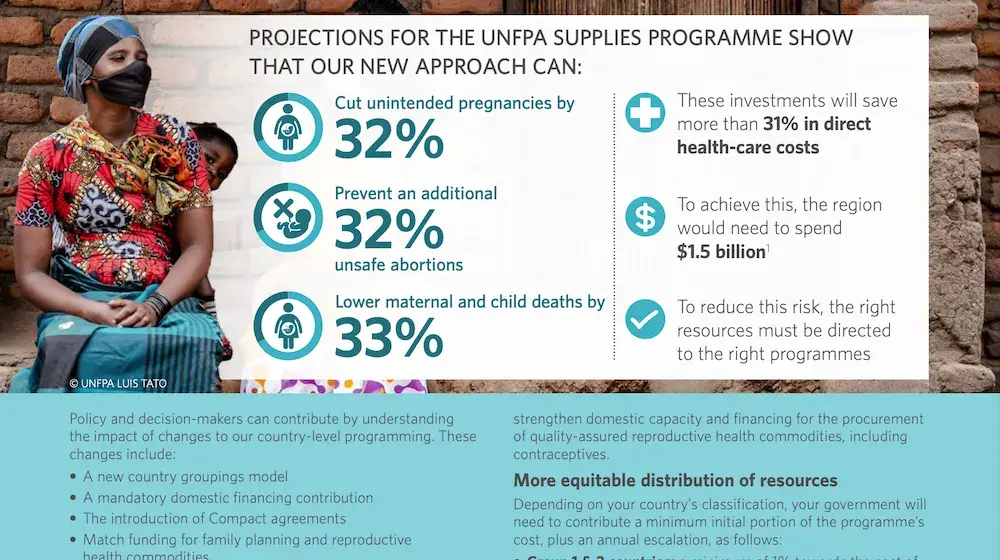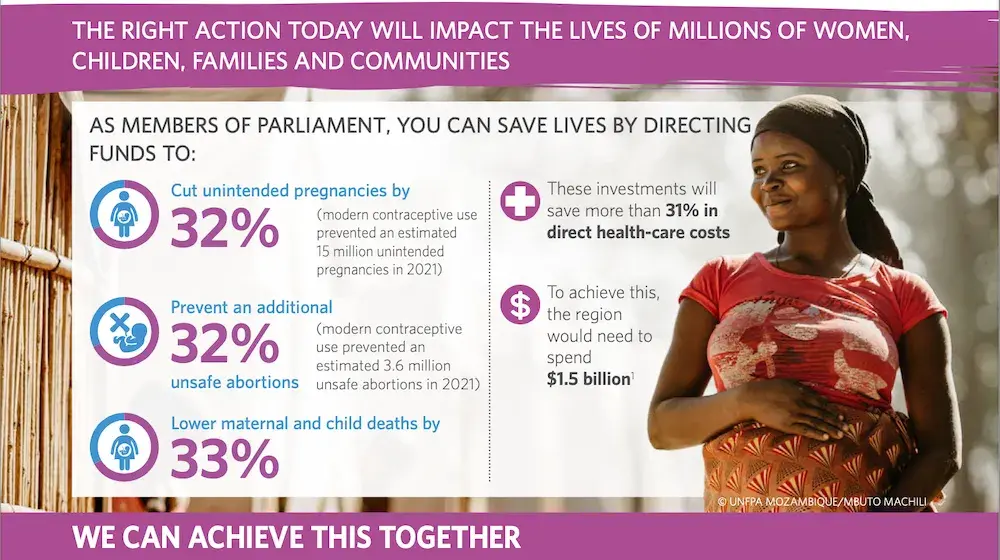DEBARK, Amhara region - “In this difficult situation, family planning will help me take care of my own health and safety and better care for my baby and family” says Nigiste, 21, a mother of a three-month-old son. After the conflict expanded from Tigray to her region in Amhara, she fled with her newborn son and now lives in Kulch-Meda, an internally displaced persons camp at the outskirts of Debark town. She receives family planning counseling at Marie Stopes International (MSI), a mobile clinic supported by UNFPA.
The conflict in northern Ethiopia has displaced thousands of people and more than 9.4 million are in need of urgent humanitarian assistance.
I am alone and I barely have enough to cover my basic needs. After I found out the benefits of spacing pregnancies, I decided to use family planning.
“I am alone and I barely have enough to cover my basic needs,” said Nigiste, who relies entirely on humanitarian aid for survival. “After I found out the benefits of spacing pregnancies, I decided to use family planning,” she explained.
Across northern Ethiopia, health systems are cracking under ever-increasing needs. Damage and destruction of health facilities and shortage of supplies and providers are severely disrupting the delivery of sexual and reproductive health services to people in need.
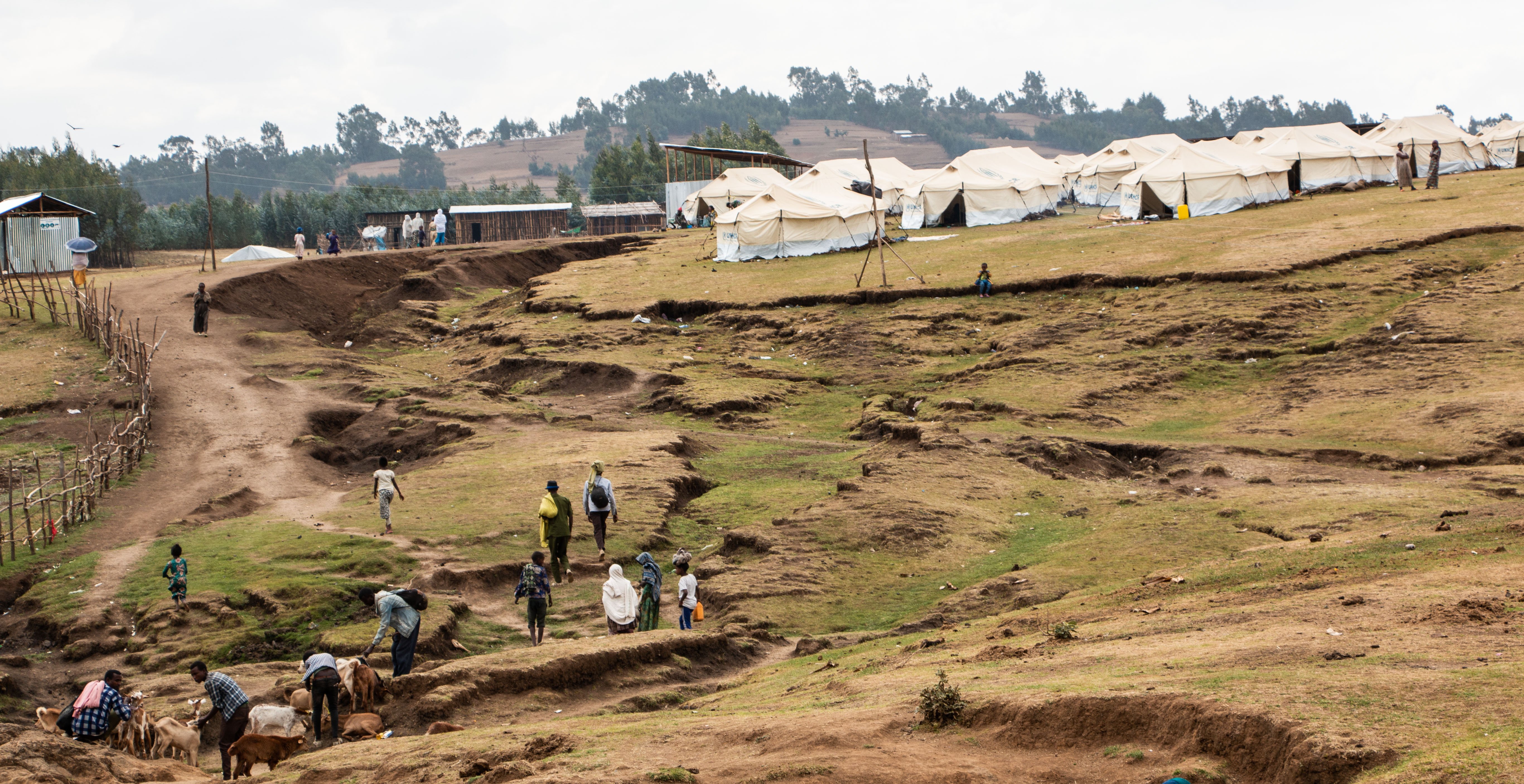
Family planning a life-saving intervention
Family planning needs do not disappear during a crisis. In fact, stories like Nigiste’s are all too common, as needs become more urgent and women may want to avoid the dangers of pregnancy and childbirth, particularly during a period of displacement or crisis.
“The demand for family planning services is high,” said Mr. Birhanu Yalem, an MSI clinical nurse at the camp. “Women seek to avoid childbirth in this situation, including those who have already experienced obstetric complications in the past and who would most likely be at high risk in the future. Family planning saves lives’’, he explained.
During conflict, displacement, or a natural disaster, family planning is increasingly important to prevent unintended pregnancies, facilitate proper birth spacing, and reduce the burden of maternal mortality. Over 60 per cent of unintended pregnancies end in abortion and an estimated 45 per cent of all abortions are unsafe, causing 5 – 13 per cent of all maternal deaths. In an emergency, the situation worsens.
With the disruption of critical healthcare services and the frequent increase in sexual violence during emergencies, family planning is a proven, high-impact, cost-effective intervention.
“With the disruption of critical healthcare services and the frequent increase in sexual violence during emergencies, family planning is a proven, high-impact, cost-effective intervention that not only supports women’s rights but prevents maternal and newborn deaths, or associated complications, such as fistula,” says Dr. James Okara Wanyama, UNFPA Humanitarian Programme Coordinator in Ethiopia.
Months of conflict coupled with the cumulative effects of the COVID-19 pandemic and other climate-related shocks have gravely compromised access to maternal and reproductive health services across the north of Ethiopia. More than 13 million people are estimated to be in need of life-saving health services.
Improving family planning service delivery for conflict-affected communities
UNFPA Ethiopia, in partnership with Marie Stopes International, has deployed 4 mobile clinics - composed of midwives, clinical nurses and psychosocial counselors - to ensure the provision of critical maternal and reproductive health services day and night at internally displaced persons (IDP) sites in Amhara and Afar regions. Mobile teams are raising awareness on services availability as well as strengthening the capacity of existing health professionals in the Minimum Initial Service Package at host communities and IDP sites in Afar and Amhara regions.
In addition, UNFPA and MSI are supporting one-stop centers with the provision of clinical management of rape, psychosocial support, and dignity kits for gender-based violence survivors. This life-saving support provided by mobile teams to conflict-affected communities across northern Ethiopia is made possible with funding from the Danish International Development Agency (DANIDA) and Irish Aid.
Nigiste is grateful to make a choice based on her own needs, priorities and reproductive life. But much more needs to be done to ensure every woman in Ethiopia is able to exercise their reproductive rights.
To continue providing life-saving family planning services, including maternal and newborn health and protection services, UNFPA is appealing for $30 million as part of the broader 2022 UN Humanitarian Appeal for Ethiopia. To date, there is a critical funding gap of US $11 million.

